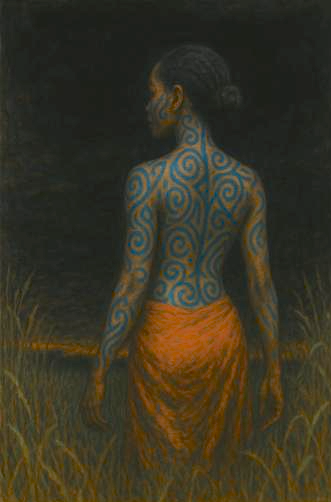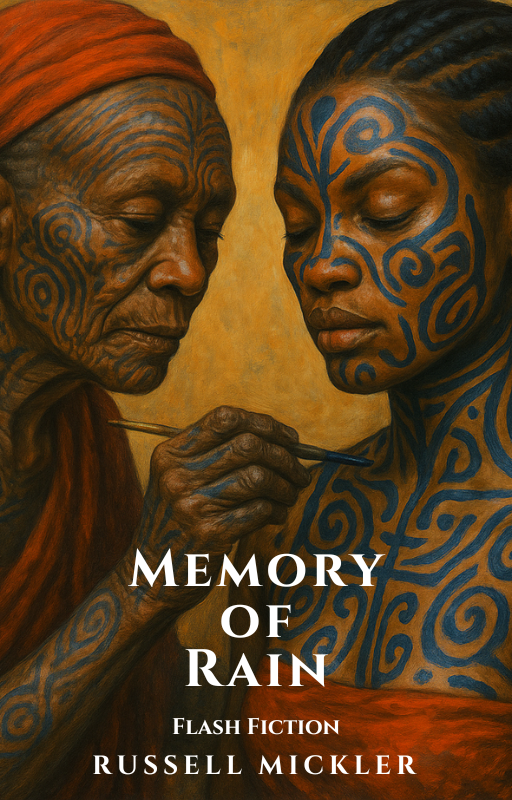3rd Jerboa Lit 500 Contest - Memory of Rain
Jerboa Lit’s 3rd 500-word contest ran in October. After receiving an honorable mention for Fuckups Are Welcome in the 2nd contest earlier this year, I was super-jazzed to participate in the third!
Everyone had to write five hundred words in 48 hours with the following prompts:
GENRE: Myth/Legend/Tall tale
ITEM: Abstract painting
PHRASE: open the cellar door
My submission was Memory of Rain. I wanted to write something rooted in African mythology, and my story draws on an abstract painting style called Uli, practiced by Igbo women in Nigeria. I originally titled the work Memory of Rain and Shadow, given the shadow’s role in the mythology explored in the story, but I figured it was unnecessarily long to convey the story’s meaning.
The piece attempts to fuse myth, a coming-of-age ritual, and intergenerational inheritance. The story’s setting — a shrine, the trembling house, the storming villagers — unfolds with immersive detail, but the interpersonal dynamic rests between Ogechi and her grandmother.
I tried to concentrate on a moment when Ogechi’s emotional arc moves from hesitant and afraid to resolved and courageous. Grandmother retells the myth that drives Ogechi’s ritual. The memory of Grandmother’s story is the narrative engine.
The myth (the story of Nneka, the First Mother) was cut from whole cloth (total fiction, I made it up, no conscious relationship to anything but Nneka, a goddess figure) and functions both as a worldbuilding technique and as a metaphor. Ogechi’s journey is a reenactment of a cosmological precedent and involves walking naked into the wilderness.
This trial actually comes from a moment experienced by one of my partners when they were a young woman. She felt empowered walking alone, fearful of the intentions of men and monsters in the dark, and it transformed her. Ogechi’s walk symbolizes her experience.
Admittedly, the prose is highly stylized and overly sensory. The “iron-sweet tang of clay after rain,” “bruise-colored paste,” “[shimmering] indigo patterns” contribute to the tone and atmosphere, layering in that mythic weight but probably risking narrative fatigue. It could be overwrought, but I wanted to give it a heavy, magical quality.
My betas said the ending is haunting — strong, visually striking imagery — a moment of personal feminine empowerment and a courageous march toward destiny. I wanted to wrap on a moment of transition, leaving the interpretation open without leaving the reader feeling incomplete.
Let’s see how it goes! Contest results are due sometime in January 2026. Fingers crossed!
R

